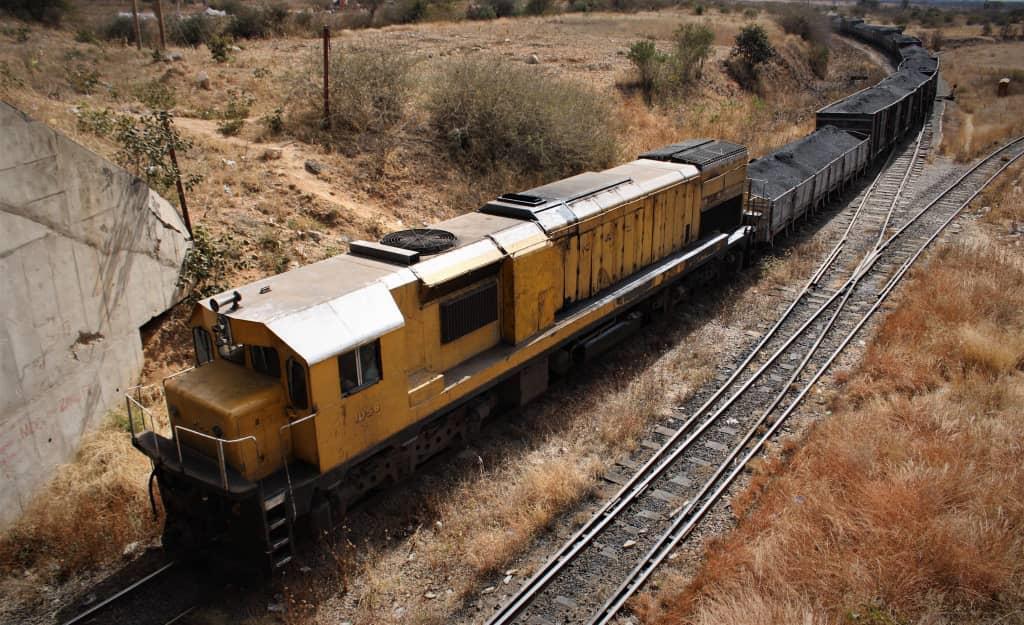Parliamentarians are considering banning transporting bulk goods by road in order to force businesses to use the National Railways of Zimbabwe (NRZ) again.
There is a widespread belief that NRZ’s lack of capacity has led to an increase in haulage trucks transporting heavy goods and damaging infrastructure.
However, NRZ claims it is incorrect to say its shortcomings have contributed to the rise of haulage trucks. Instead, the industry’s poor performance is to blame, as companies are producing fewer goods that cannot be moved by trains, thus turning to haulage trucks.
During a visit to NRZ’s Mechanical Workshops in Bulawayo by the Parliamentary Portfolio Committee on Transport and Infrastructural Development on Wednesday, Member of Parliament for Pelandaba-Tshabalala, Joe Tshuma, said the resuscitation of NRZ is key because his constituency houses many rail employees.
“If tomorrow the transport committee were to stop this transportation of coal from Hwange to other parts of the country because they are damaging roads, will the railways be in a position to take up that role?” asked the MP.
“Will NRZ be able to move? I want to scream about these haulage trucks damaging roads because we can’t continue doing that. We know NRZ was deliberately killed because of this introduction of haulage trucks.”
Tshuma said that before fighting for NRZ in Parliament, he needs assurance from the railway transporter that it can “jump in and cover that gap.”
Chairperson of the Parliamentary Portfolio Committee on Transport and Infrastructural Development, Knowledge Kaitano, concurred, stating that the proposal to ban the movement of bulk goods on roads is something MPs have discussed.
“We have talked about it in Parliament. Some MPs are of the idea that we have too many huge trucks. For example, the Harare to Mutare highway has over 80 trucks moving up and down per day,” he said. “This has contributed to the damaging of our roads, so NRZ must be back on the rail to also save road carnage.”
In her response, NRZ General Manager, Respina Zinyanduko, claimed the company does have the capacity to move goods locally and for export.
“We have our own locomotives and wagons that we are working on to make sure we increase our capacity,” she said. Zinyanduko mentioned that NRZ has an open access arrangement where companies with rolling stock and shaft power can use their own locomotives and wagons to move goods.
“Already we have tried and tested the open access arrangement and it’s very profitable for NRZ,” she said. “We also have the Beitbridge Bulawayo Railway (BBR) that we are working with. Unfortunately, during the time we wanted to introduce it for mineral exports, there was a recession in world mineral prices. We had to apply BBR to other areas, but it has wagons and locomotives on standby for that arrangement. This will come as a short-term measure while we are procuring and refurbishing our own wagons to fully take over the running of the trains.”
However, the GM noted that the performance of the industry also mirrored the performance of the NRZ. “We only do well operating in a market where the industry is doing well,” Zinyanduko said. “During its heyday, NRZ was moving traffic for ZISCO Steel. At any given time, we had 15 trains for ZISCO and we knew that NRZ would raise salaries from ZISCO. Only five days of movement of traffic was enough to pay our 15,000 employees then.”
Zinyanduko lamented that since ZISCO’s collapse, “NRZ cannot even move one wagon,” which has affected its operations. “People say the reason why we have so many haulage trucks is purely because NRZ is not functioning. It’s not a very correct position.”
She explained that NRZ used to move goods for Lever Brothers using a full train, but now most companies are surviving from “hand to mouth.”
“Some can’t even afford a wagon that takes 54 tonnes, so they buy one haulage truck. For them to wait for NRZ to deliver, it will be too late,” Zinyanduko said. “We have our shortcomings, but I hope efforts to revive the industry will also have a positive impact on the operations of NRZ as well as the creation of employment.”
A member of the NRZ Board, Tshinga Dube, urged the MPs to alert the Treasury on the importance of recapitalizing NRZ.
“MPs have a big role in convincing the government that railways are very essential in any country in the world. You must alert the Minister of Finance that there is a need to finance railways,” he said. “Our neighbours—Zambia and Tanzania—are producing electric trains to cut their time frame from Dar es Salaam to Lusaka by less than half. But we are struggling to repair the old trains, some of which were left by Cecil John Rhodes.”


Slowly the truth and sense is creeping into the craniums of our politicians, notice that NRZ was retrenched by the politicians and after achieving that goal, they caucused into cartels that formed the bulk road transport clubs and these, we have seen the damaging effects they have brought on the country’s road network, which were last meaningfully maintained before Uhuru…